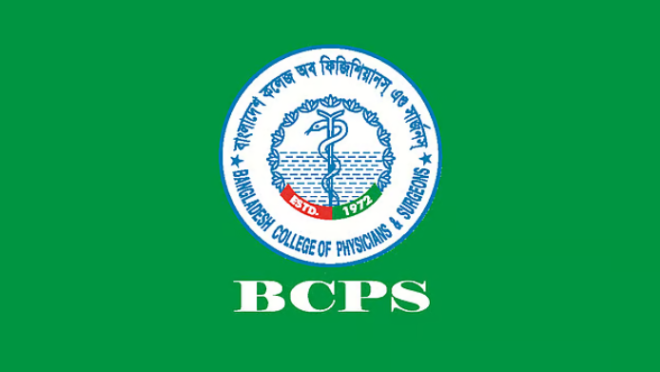12,000 candidates in uncertainty as FCPS exam set for 1 July
12,000 candidates in uncertainty as FCPS exam set for 1 July

A group of doctors, reportedly aligned with the BNP, have locked the office of the president of the Bangladesh College of Physicians and Surgeons (BCPS), demanding the resignation of its councillors. Since then, councillors have stopped attending office, bringing operations at the institution to a standstill. As a result, nearly 12,000 postgraduate students now face uncertainty over their examinations.
The Fellow of the College of Physicians and Surgeons (FCPS) examination is scheduled for 1 July. The process of preparing question papers and other necessary arrangements was due to begin on 2 March, but with the president’s office and key departments shut, progress has stalled. There is no clear answer as to who will remove the locks or when.
As a regulatory body for postgraduate medical education and examinations, BCPS awards the prestigious FCPS degree, which holds significant international recognition. Despite ongoing criticisms of medical education standards in Bangladesh, BCPS has been striving to maintain its academic integrity.
On Monday, a visit to BCPS in Mohakhali revealed that Professor Mohammad Shahidullah, the institution’s president, was absent from his office, which remains locked on the eighth floor of the BCPS building. Employees stated that on 25 February, a group of doctors locked multiple offices, including that of the president, and demanded the councillors’ resignations. Since then, neither the president nor any councillor has attended office.
One of the doctors present that day was Surgeon Firoz Kader. Speaking to Prothom Alo, he said, “I do not represent any party or faction. I was there to ensure that no untoward incident occurred and that future exams are not disrupted.” However, images from the incident show him among doctors widely known to be affiliated with the BNP. Multiple medical associations have confirmed their identities.
BCPS operates as an autonomous institution, with decision-making authority vested in its 20-member council, which includes four government-appointed members and 16 elected by BCPS members. Elections are held every four years for eight of the elected seats, and this year, eight councillors’ terms had ended, prompting preparations for new elections. However, pressure was applied on the remaining eight councillors to resign, and following the events of 25 February, all of them submitted their resignations.
Dr Rashid-e-Mahbub, former president of the Bangladesh Medical Association, commented, “The government, specifically the Ministry of Health, must step in to resolve this crisis.”
The resigned councillors include notable figures such as neurologist and former director of the Institute of Neurosciences, Kazi Din Mohammad; paediatrician and former head of the paediatrics department at Dhaka Medical College, Abid Hossain Molla; former principal of Dhaka Medical College and director-general of the Directorate of Medical Education, Titu Mia; former director-general of the Directorate of Health Services, ABM Khurshid Alam; and former principal of Shaheed Suhrawardy Medical College, Maksudul Alam—along with Imtiaz Farooq, Billal Alam, and Noor Hossain Bhuiyan Shaheen. However, their resignations have not yet been accepted.
Some of these doctors held key government positions in the health sector under the former Awami League government and are regarded as seasoned professionals. Observers suggest that regardless of political developments at BCPS, the institution must be reactivated while maintaining its academic standards.
A BCPS official, speaking on condition of anonymity, revealed that nearly 3,000 students were supposed to complete various workshops and thesis presentations before the FCPS exam on 1 July, but these have yet to take place. This has put the entire examination process at risk, in addition to disrupting daily operations at BCPS.
Professor Rashid-e-Mahbub added that the government must act promptly through the Ministry of Health to bring the situation under control.


